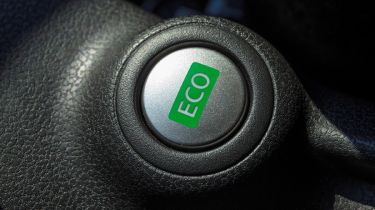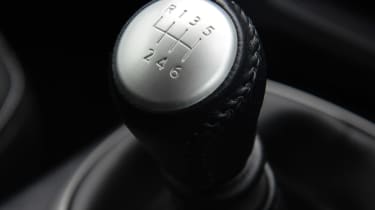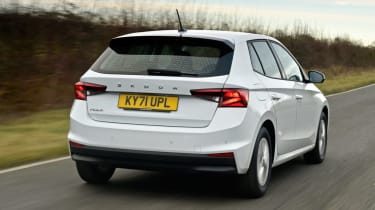Eco driving tips
Save fuel, money and the environment with our eco-driving techniques

The cost of motoring is almost always increasing, and as car prices go up and the government increases its revenue from cars, it is no surprise that some drivers feel they are being priced off the road. To combat this there are a variety of methods drivers can use to reduce their motoring costs, including the way they drive.
The calculation is simple, cars need energy to move, and the more of it you demand the more fuel you will use: whether you fill up your car with petrol, diesel, or electricity the end result is the same. Reducing the demand for power will reduce the amount of fuel your car needs to use, but it can be easier said than done, and many motorists are good at saving fuel on long journeys but find it difficult in traffic or busy cities.
Below we have listed five fuel-efficient driving techniques to help you cut down your cost of motoring. Make sure you also check out our guide to the best cheap-to-run cars.
1. Keep your car in an eco-friendly condition
Our first eco-driving tip needs attending to before your car’s wheels turn. Make sure its tyre pressures are all in accordance with your car’s handbook, as underinflated tyres increase fuel consumption by as much as 6%.
 Car maintenance: the DIY essentials for looking after your car
Car maintenance: the DIY essentials for looking after your car
Next, if you’ve you have a roof box, bike rack or removable roof rails fitted, and they’re not being used, take them off. The larger and less aerodynamic your car is, the harder the engine has to work to move it through the air.
Be sure your car is serviced on time. Keeping its oil fresh and at the correct level will ensure the engine runs as cleanly and efficiently as possible.

2. Change up through the gears as soon as possible
A car consumes fuel at a greater rate most heavily when it’s accelerating and the more harshly you accelerate, the more fuel your car will use. It also pays to minimise the amount of time you spend braking by planning ahead and allowing your car to lose momentum before needing to apply the brakes, you’ll be driving as economically as possible and your passengers will likely prefer it too.
In practical terms, this means maintaining as steady a pace as possible over speed bumps and cushions, estimating whether you’re going to need to stop for traffic lights or queueing traffic, and slowing gently. Some eco ‘hypermilers’ recommend taking the car out of gear (if it’s a manual) and coasting, but this isn’t recommended as it can reduce your control over the vehicle. Modern engines are designed to use little to no fuel when coasting anyway.
3. Drive smoothly and plan ahead
A car consumes fuel most heavily when it’s accelerating and the more harshly you accelerate, the more fuel your car will use. If you’re able to minimise the amount of time you spend braking and then accelerating, you’ll be driving as economically as possible.
In practical terms, this means maintaining as steady a pace as possible over speed bumps and cushions, estimating whether you’re going to need to stop for traffic lights or queuing traffic, and slowing gently. Some eco ‘hypermilers’ recommend taking the car out of gear (if it’s a manual) and coasting, but this isn’t a great idea, as you won’t be in full control. Modern engines are designed to use almost no fuel when your foot’s off the accelerator, anyway.

4. Avoid short journeys and air-conditioning
Combustion engines work most efficiently when they’re fully warmed up, so short five-minute journeys will do you no favours if saving fuel is the name of the game. If short journeys are what you mostly cover, an electric car or plug-in hybrid would be a worthwhile switch, as they don’t require any warming up and electric motors are less prone to wear and tear.
While combustion engines use more fuel when warming up, air-conditioning uses fuel when it’s cooling you down. These systems are essentially small fridges, which obviously require power to run. So turn off the A/C unless you really need it to cool the cabin to a comfortable temperature or demist the windows.
5. Switch off your engine if feasible
Automatic stop-start systems are becoming commonplace these days, but if your car doesn’t have this feature, you could consider switching it off when stopped in traffic. There are a couple of caveats to this, though: firstly, you need to be sure your battery is in good condition, as repeated starts will strain it. It’s also a bad idea to turn your car off before the engine has warmed up, as it’ll take longer to reach peak efficiency (see number 4). Those conditions aside, if you think the traffic is so bad you’re going to be stopped for more than two minutes, it’s probably worth turning off the engine.
And if low-cost motoring is your priority, head over to our list of the top 10 cheapest cars to run.
Money-saving tips when buying a car
Most Popular
Tips & advice

Car dashboard warning lights: what does each symbol mean?

Electric car charging stations: public networks, charger types, apps and maps






